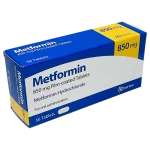Primate Antibody Treatment Prevents Organ Rejection After Transplant – Study

A recent study conducted in non-human primates has unveiled promising potential in using a manmade monoclonal antibody to address the issue of organ rejection following transplant procedures. This groundbreaking research has shown that the antibody successfully promoted graft survival after both kidney and pancreatic islet cell transplantations.
The monoclonal antibody in question, known as AT-1501, holds the promise of advancing into human clinical trials, marking a significant development in the field of organ transplantation. Dr. Imran Anwar, the lead author of the study and a surgical research fellow at Duke University School of Medicine, highlighted the limitations of current medications used to prevent organ rejection. These medications, while effective overall, often come with a host of side effects, including immune system suppression, leaving patients vulnerable to infections, organ damage, and non-immune complications such as diabetes and high blood pressure.
Dr. Anwar emphasized the industry-wide effort to develop less toxic drugs in recent years. AT-1501 represents a potential step forward in achieving this goal. It was specially engineered to minimize the risk of blood clots, which was a concern with an earlier version of the antibody.
In the study involving kidney transplants in primates, AT-1501 demonstrated its ability to prevent rejection without the need for additional immunosuppressive drugs. Importantly, it did not pose a risk of promoting blood clots, a significant safety factor.
For islet transplantation, AT-1501 proved effective when used in combination with existing immunosuppressive agents but was less effective when used alone. Islets, clusters of cells found throughout the pancreas, are vital for regulating insulin levels in individuals with diabetes. The combination therapies employed in the study for islet transplantation resulted in uniform islet graft survival, without the typical complications such as weight loss or infections.
Dr. Allan Kirk, chair of Duke’s surgery department and a co-author of the study, emphasized that the data supports AT-1501 as a safe and effective agent for promoting both islet and kidney transplant survival and function. This positive outcome allows for immediate progression into clinical trials, marking a potential milestone in the quest for less toxic organ transplant solutions.
Eledon Pharmaceuticals, formerly known as Anelixis Therapeutics, is actively developing AT-1501 for use in kidney and islet cell transplantation.
The study’s findings, published online in the journal Science Translational Medicine on August 30, 2023, received funding from sources including the U.S. National Institutes of Health and the Diabetes Research Institute Foundation. This research holds significant promise for improving the success rates and safety of organ transplantation procedures in the future.





